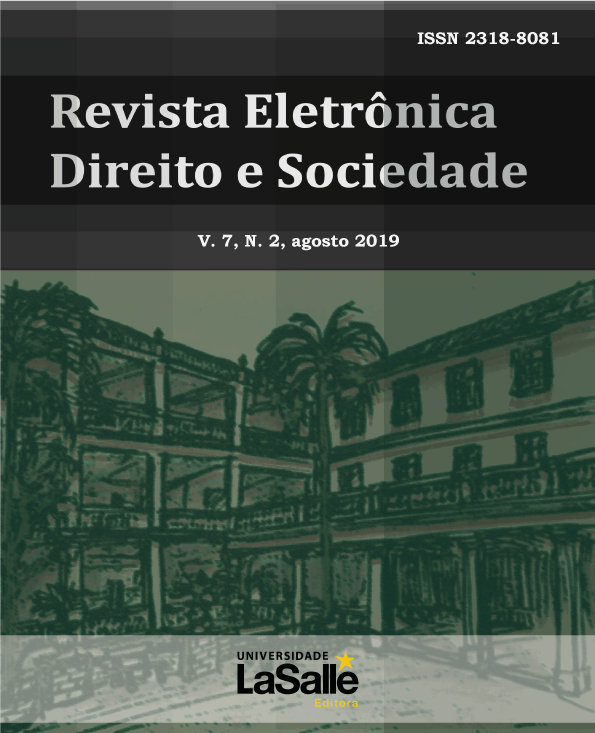A justiça alternativa no Brasil e a reprodução das lógicas de dominação: classe, raça e gênero
DOI:
https://doi.org/10.18316/redes.v7i2.5998Parole chiave:
Direito Alternativo, Emancipação Social, Classe, Raça, Gênero.Abstract
A partir da dialética entre tensão e emancipação social proposta por Boaventura de Sousa Santos, a presente pesquisa objetiva analisar as hipóteses emancipatórias do direito através da cooptação do Estado brasileiro de lógicas alternativas do direito. Tendo em vista a constância do colonialismo, capitalismo e patriarcado nas sociedades contemporâneas, parte-se de uma macro teoria aplicada a uma microssociologia jurídica para demonstrar os limites do uso do direito como ferramenta para emancipação. Analisa-se, então, o paradoxo que emerge no campo judiciário onde as lógicas alternativas do direito ao serem absorvidas pelo Estado confrontam-se hoje às racionalidades reprodutoras da dominação de classe, raça e gênero. Com uma análise empírica no Juizado Especial da cidade de Canoas/RS percebe-se que a interseccionalidade das formas de dominação representa o deslocamento do eixo da tensão para o lado regulatório em detrimento do emancipatório. Portanto, suscita-se a necessidade de uma reflexividade constante desde o objeto de estudo até a construção e produção do conhecimento na pesquisa.Downloads
Pubblicato
Fascicolo
Sezione
Licenza
Autores que submetem seus manuscritos para serem publicados na Revista REDES concordam com os seguintes termos:
Os autores declaram ter ciência de que mantém os direitos autorais concedendo à REDES o direito à publicação.
Os autores declaram ter ciência de que o trabalho submetido será licenciado sob a Licença Creative Commons atribuição não-comercial que permite o compartilhamento do artigo com reconhecimento da autoria e publicação nesta revista.
Os autores declaram ter ciência que em virtude de os artigos publicados nesta revista tem acesso público e gratuito.
Os autores declaram, sob as penas da lei, que o texto é inédito e original e que têm ciência de que identificada a existência de plágio, os autores plagiados serão informados – para querendo, tomarem as medidas legais nas esferas cível e criminal – e, os autores do plágio terão seu acesso à revista bloqueado.
Os autores declaram que – em caso de coautoria – todos contribuíram significativamente para a pesquisa.
Os autores obrigam-se a fornecer retratações e (ou) correções de erros em caso de eventual detecção.
Os autores obrigam-se a não publicar o texto submetido a REDES em outra Revista eletrônica (ou não).

A Revista Eletrônica Direito e Sociedade - REDES - está licenciado com uma Licença Creative Commons Atribuição-NãoComercial 4.0 Internacional.
Baseado no trabalho disponível em http://revistas.unilasalle.edu.br/index.php/redes/about/submissions#copyrightNotice.
Podem estar disponíveis autorizações adicionais às concedidas no âmbito desta licença em http://creativecommons.org/.

